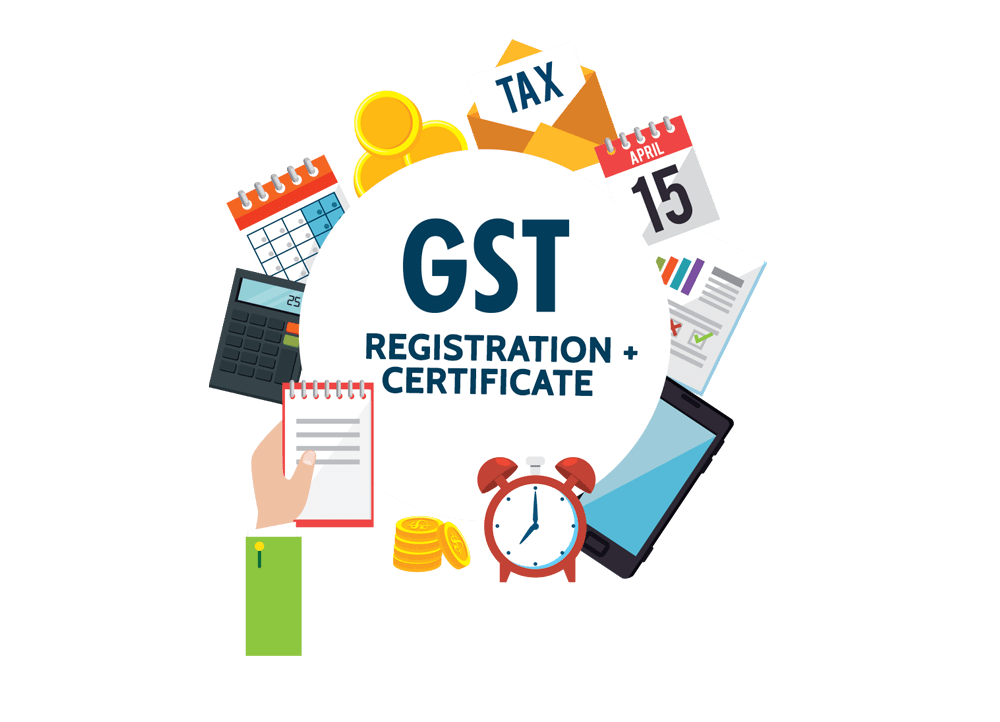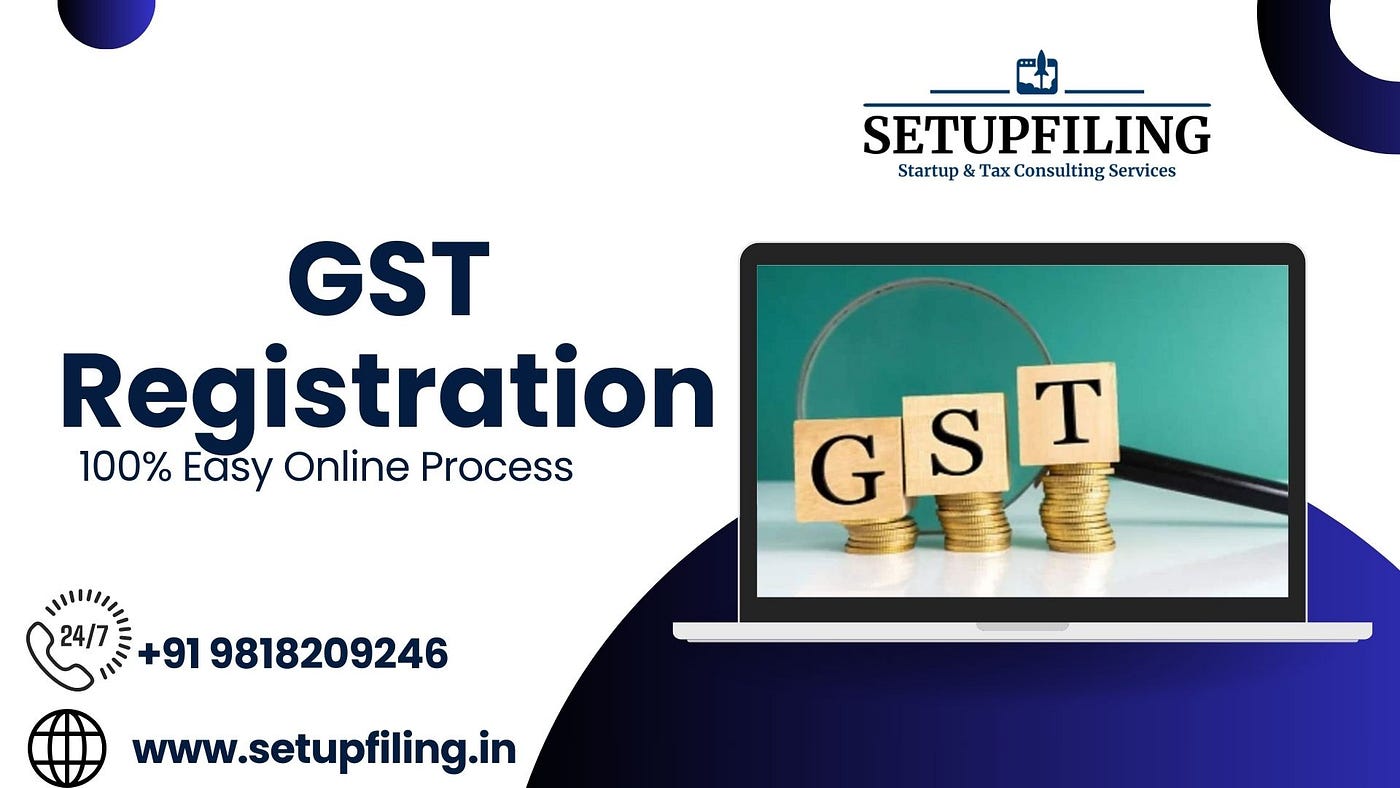How to Effectively Get Your GST Registration Done Today in Singapore
How to Effectively Get Your GST Registration Done Today in Singapore
Blog Article
Maximizing Your Service Prospective With Correct GST Registration: Trick Approaches and Best Practices
In the world of company operations, the significance of appropriate GST registration can not be overemphasized. It acts as a basic column that underpins the monetary health and regulatory compliance of any type of venture. By browsing the intricate landscape of Goods and Services Tax with skilled approaches and adherence to ideal practices, companies can unlock a realm of chances to increase and thrive. Through a meticulous method to registration types, record-keeping, and compliance, business can not just simplify their procedures yet also acquire a competitive edge in the marketplace. However, the key to really making the most of the prospective hinge on the strategic use of GST systems such as input tax debt. This critical facet, combined with timely conformity with declaring due dates, can lead the way for continual development and success.
Comprehending GST Basics
Checking out the fundamental concepts of Goods and Provider Tax Obligation (GST) is important for organizations aiming to browse the complex landscape of modern taxes systems. GST is a consumption-based tax that is levied on the supply of items and services. It has actually replaced a huge selection of indirect taxes, enhancing the taxes framework and cultivating a unified market across India. Under GST, services need to comprehend the concept of input tax obligation credit score, which allows them to assert credit report for tax obligations paid on their inputs. This mechanism assists protect against cascading impacts and advertises efficiency in the tax obligation system.
Additionally, services must grasp the difference in between CGST (Main Item and Services Tax) and SGST (State Goods and Services Tax Obligation) CGST is gathered by the central government on intra-state materials, whereas SGST is levied by the state government. Furthermore, IGST (Integrated Goods and Solutions Tax) puts on inter-state purchases, guaranteeing smooth tax debt throughout the supply chain. Understanding these standard principles of GST is important for organizations to adhere to regulations, maximize tax obligation planning, and boost their total monetary management approaches.
Selecting the Right Enrollment Kind
Optimizing Company Compliance via Strategic GST Enrollment Choice is essential for companies wanting to operate efficiently within the GST structure (Get your GST registration done today in Singapore). Selecting the best enrollment type is an important choice that can influence various aspects of a service, consisting of conformity requirements, tax obligation, and operational flexibility
Routine enrollment is ideal for businesses with an annual turn over going beyond the threshold restriction, allowing them to collect tax obligations from consumers and case input tax obligation credits. On the other hand, the Make-up scheme is made for little businesses with a turnover listed below the defined limit, providing lower tax rates however with constraints on input tax obligation debt cases.
Preserving Accurate Records
Developing thorough record-keeping techniques is crucial for organizations to make sure compliance with GST regulations and track economic deals precisely. Maintaining exact records not only promotes smooth GST filing yet additionally assists in keeping track of capital, evaluating business efficiency, and getting ready for audits. To accomplish this, companies ought to apply an organized strategy to record-keeping by recording all deals, including sales, purchases, expenses, and GST payments. Making use of accountancy software program can streamline this process, providing an electronic platform to document and organize monetary data effectively.
Regular settlement of financial records with financial institution statements and GST returns is essential to recognize any type of discrepancies or mistakes quickly. Businesses need to likewise retain all appropriate records, such as receipts, contracts, and billings, to validate their taped transactions. By preserving an efficient record-keeping system, companies can not only follow GST regulations however likewise obtain valuable insights right into their financial health and make notified choices to drive growth and earnings.
Leveraging Input Tax Credit History
Making use of input tax credit efficiently can dramatically benefit companies by lowering their tax obligation and boosting money circulation management. Input tax obligation credit history enables services to balance out the tax they have paid on inputs important link against the tax obligation responsibility on outputs. By leveraging input tax credit history, services can effectively decrease the total tax obligation problem on their products or services, thus enhancing their competitiveness on the market.
One secret method to make the most of input tax credit history is to guarantee meticulous documentation and conformity with GST laws. Keeping accurate records of all input taxes paid is critical for claiming the credit score quickly and properly - Get your GST registration done today in Singapore. Companies must routinely integrate their input tax credit report claims with the purchases made to recognize any inconsistencies and fix them quickly
An additional best method is to check changes in GST legislations and regulations to stay educated about eligible input tax obligation credit scores groups and rates. Involving with tax obligation specialists or attending normal training sessions can assist organizations stay updated on the most up to date advancements and maximize their input tax credit score claims. Eventually, by properly leveraging input tax credit scores, businesses can enhance their financial efficiency and competitiveness in the marketplace.

Complying With Filing Target Dates
Adherence to declaring deadlines is a vital facet of maintaining compliance with GST guidelines for services. Prompt entry of GST returns ensures that companies satisfy their tax obligation commitments and avoid penalties or fines for late declaring - Get your GST registration done today in Singapore. It is crucial for their explanation companies to monitor the numerous GST declaring deadlines based on their registration type, whether regular monthly, quarterly, or each year, to avoid any type of gaps in compliance
To abide by filing target dates efficiently, organizations should establish durable inner processes for record-keeping and settlement of economic data. Using accountancy software or engaging expert accounting professionals can simplify the process and assistance make certain prompt and precise entries. Furthermore, establishing up tips or informs for upcoming filing due dates can assist companies remain arranged and stay clear of final hurries that might bring about errors.
Failing to fulfill GST declaring due dates can result in repercussions such as interest costs on superior tax obligation quantities or also legal action in extreme instances. By focusing on conformity with filing deadlines, companies can demonstrate excellent governance methods and maintain a favorable partnership with tax obligation authorities, promoting depend on and reputation within the business ecosystem.

Verdict
To conclude, taking full advantage of organization possibility with appropriate GST registration includes recognizing the fundamentals of GST, choosing the suitable registration kind, preserving accurate records, leveraging input tax obligation credit rating, and conference declaring due dates. By adhering to these crucial approaches and best techniques, services can guarantee compliance with GST guidelines and enhance their financial performance.
Under GST, companies need to comprehend the concept of input tax obligation credit, which allows them to assert credit rating for tax obligations paid on their inputs. Routine enrollment is ideal for organizations with an annual turnover look at this web-site exceeding the threshold restriction, allowing them to gather tax obligations from consumers and claim input tax credit scores. Input tax obligation credit allows companies to balance out the tax they have actually paid on inputs versus the tax obligation responsibility on results. By leveraging input tax obligation credit scores, companies can successfully reduce the general tax obligation burden on their services or products, therefore enhancing their competitiveness in the market.
Engaging with tax obligation specialists or attending regular training sessions can help companies remain upgraded on the most current growths and maximize their input tax obligation credit rating insurance claims.
Report this page